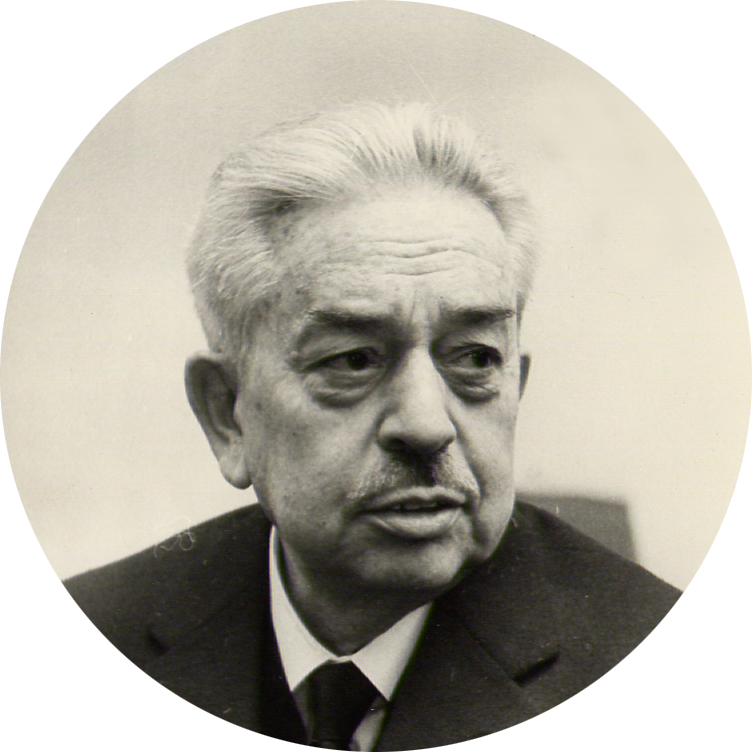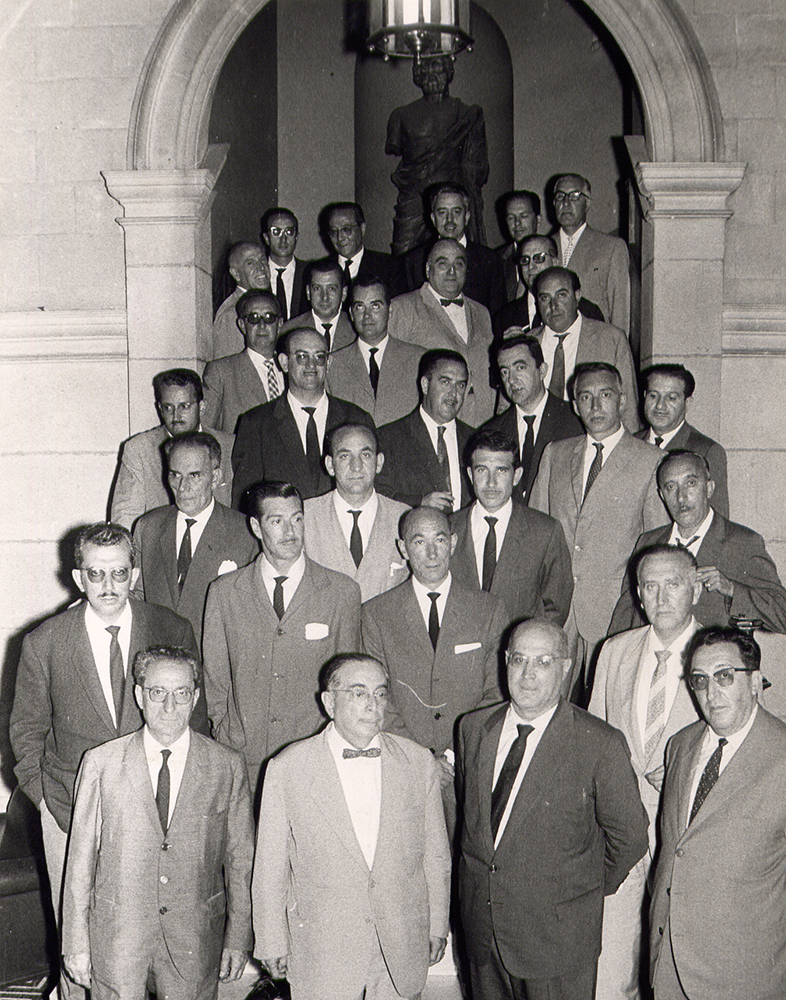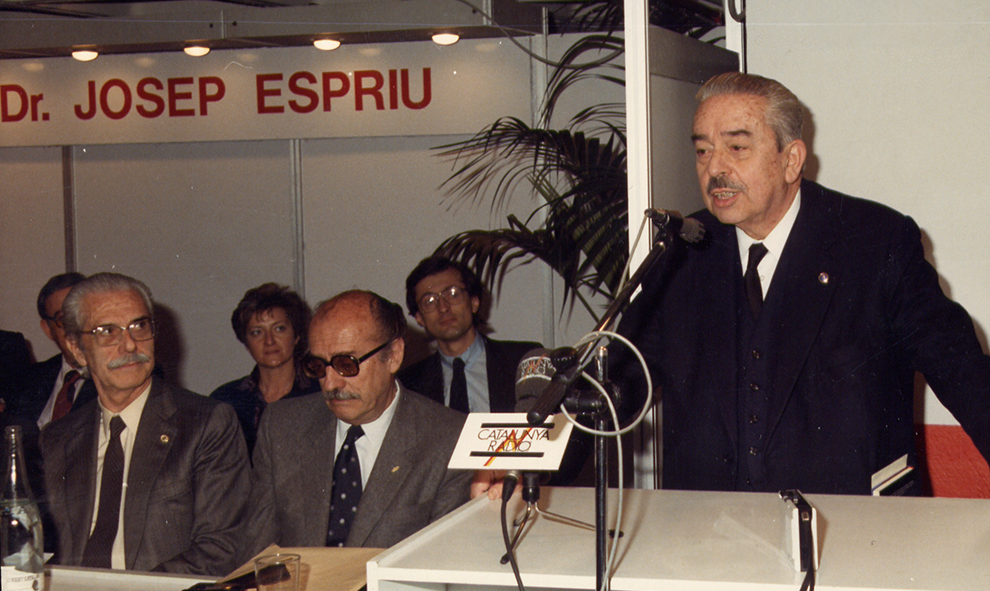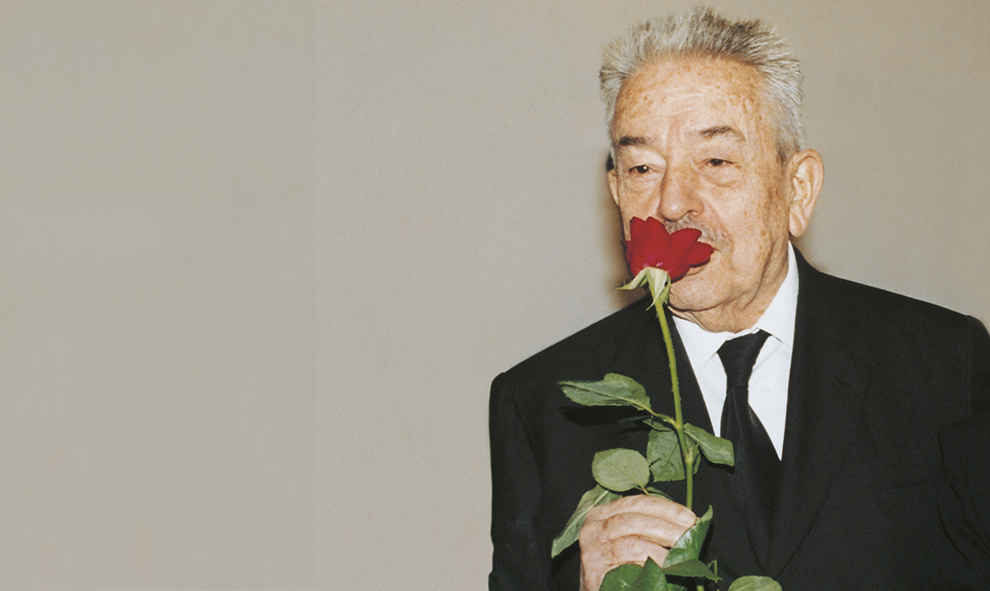Dr. Josep Espriu

Dr Josep Espriu was an outstanding global ambassador for cooperative healthcare. He was born in 1914 in Santa Coloma de Farners (province of Girona, Spain) and in 1942 he graduated with a degree in Medicine and Surgery from the Faculty of Medicine at the University of Barcelona. He worked as a general practitioner in a surgery in the Gràcia district of Barcelona, where he also treated Social Security patients, and was the founder of Assistència Sanitària and Asisa, currently two of Spain's leading private healthcare companies.
Josep Espriu felt the need to seek another way to enable what he called “satisfactory medicine”. In the 1950s he served as a member of leadership team of the Barcelona Medical Association, which made him aware of the working conditions of doctors. He had first-hand knowledge of an experience in Bilbao, based on egalitarianism, in which doctors acted as owners and professionals at the same time, under a model of free choice of doctor and payment per medical act performed.

Dr. Josep Espriu at the Barcelona Medical Association, 1963.
With a persistent concern for solidarity and the equality of individuals, he always advocated a socially responsible practice of medicine, in which professionals would also accept entrepreneurial risk as a means of guaranteeing their autonomy and freedom of judgement.
Moreover, Dr. Josep Espriu's fascination with the cooperative movement led him to bring cooperativism into the health sector as the best way of guaranteeing his understanding of medicine. He always argued that “satisfactory medicine” would not be possible without the ongoing participation of two groups: healthcare professionals and the public who access healthcare. Cooperativism was the adequate tool which allowed him to involve users in the direct management of healthcare resources.
“I have striven to serve ideas which are fair and also very simple: that the patient should talk to the doctor in confidence, that the doctor should love the patient, and that nothing and no one should come between them”.
Brother of the Catalan poet Salvador Espriu, with whom he lived for much of his life, Dr Espriu was also a prolific writer and educator. As well as being the author of numerous books on healthcare cooperativism, for years he contributed weekly with a section in the magazine Destino titled “The Doctor's Advice”, which he signed under the pseudonym Cianófilo.

Dr. Josep Espriu during the tribute organized by the SCIAS cooperative, March 22, 1986.
In the last stage of his life, as President of the Espriu Foundation, he launched and led the magazine Compartir for many years, with the aim of communicating the advantages of cooperativism to readers, as well as providing information on how to improve health.

He was a guide, a teacher, a school of life and a deep well of values from which I have drawn for many years.
I would describe him as a fundamentally committed and generous being, because in reality he had a life dedicated to others. […] He was a defender of social participatory medicine affordable for the population, and not lucrative. In these terms, he brought into practice a kind of priesthood, it was a vocation from beginning to end.
I will never forget his concern for others and for his fellow man, which was basically directed towards health. This was his lifelong obsession; to achieve the best quality system but with the greatest possible freedom for doctors, without governmental obstacles to their work. He also wanted the policyholders to be able to control the work of doctors through another cooperative.
Extract from the ebook ‘Doctor Espriu. An innovative doctor' by Ediciones Asisa.
Dr. Espriu's prizes and awards
- Commendation with plaque of the Civil Order of Health (1970).
- Grand Cross of the Civil Order of Health (1994).
- Honorary National Member with Gold Emblem of the General Council of Medical Associations (1985).
- Medal for Career Merit awarded by the Ministry of Labour and Social Security (1987).
- Member of the Royal Academy of Medicine of Catalonia (1988) and full member since 1994.
- President Macià’s Medal for his career. Generalitat de Catalunya (1988).
- Honorary Membership of the Medical Associations of Madrid, Málaga, Granada, Cáceres, Las Palmas and Alicante.
- Honorary Member of the Spanish Medical and Surgical Academy (1995).
- National Health “Homenot” Award (2000). Avedis Donabedian Foundation.
- SCIAS Gold Badge in recognition of a lifetime dedicated to educating about health cooperativism.
